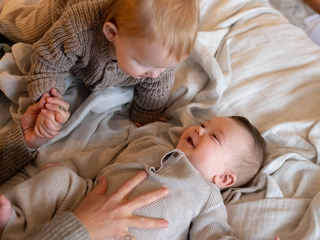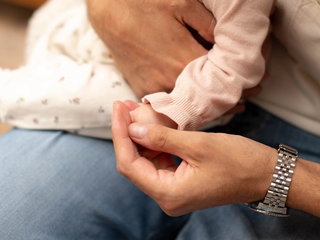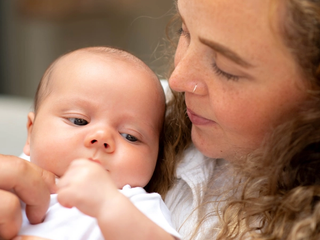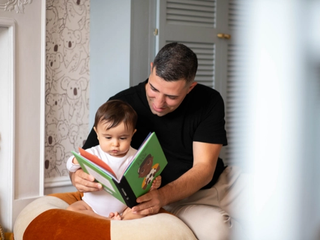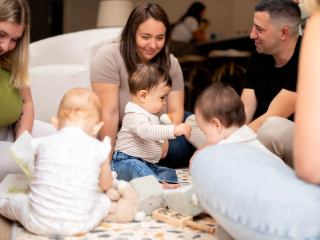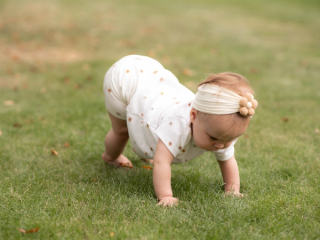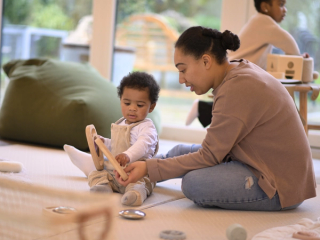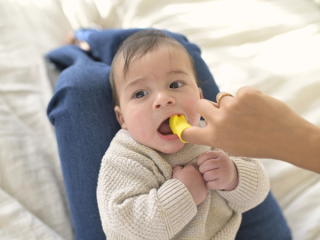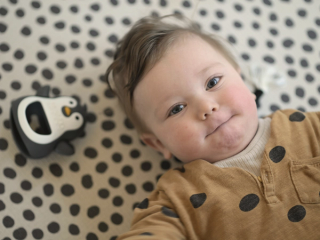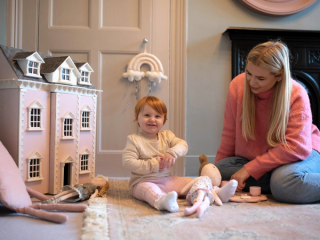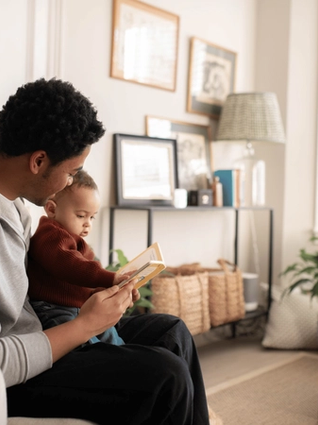
- Home
- Advice Hub
- Baby
- Bonding & Development
- How Can I Help My Baby Learn To Talk?
How can I help my baby learn to talk?
In this guide, we explore when babies typically start talking, and share practical tips on how to support and encourage their speech development.
As parents, one of the most exciting milestones we eagerly await is when our baby starts talking. Those first words hold immense joy and significance. However, the journey to speech development starts long before those initial utterances. As proactive caregivers, we play a vital role in nurturing our babies' language skills. In this guide, we'll explore when babies typically start talking, and share practical tips on how to support and encourage their speech development.
When do babies start talking?
Every baby is unique, and the timeline for speech development can vary. Generally, babies start uttering their first words between 10 and 15 months of age. However, this doesn't mean they're silent before then. From birth, babies engage in pre-verbal communication through cooing, babbling, and using gestures. These early sounds and movements lay the foundation for future language skills.
How can I help my baby learn to talk?
Babies learn to communicate when we talk and play with them throughout the day. Here are five top tips for supporting your baby in everyday interactions:
- Get their attention: Babies can only focus their attention on one thing at a time, so make sure you have their attention when you’re talking to them. Try calling their name, stroking their face, or giving them a cuddle first to make a connection with them.
- Get face-to-face: Babies are fascinated by faces, especially those of their caregivers. Engage in frequent face- to- face interactions with your baby. Make eye contact, smile, and mirror their facial expressions. Playing face-to-face with your baby shows that you are interested in them, provides essential social cues, and encourages language development. It also helps you to tune into your baby and what they might be trying to communicate with you through their babble, the way they move their bodies and their facial expressions.
- Be responsive: When your baby babbles or makes sounds, respond enthusiastically. Mimic their sounds and add words to create a "conversation." This back-and-forth interaction, known as "serve and return" fosters brain development and reinforces the importance of interacting with others. It also teaches your baby early turn-taking skills.
- Narrate your day: Describe your daily activities to your baby as you go about your routine. Whether you're cooking, cleaning, or running errands, talk to them about what you're doing. This helps expose your baby to a variety of words and concepts, laying the groundwork for vocabulary development.
- Read together: Reading to your baby is one of the most effective ways to promote language development. Choose age-appropriate board books with colourful pictures and simple text. Even before babies understand that words hold meaning, they benefit from the rhythm, intonation, and opportunity to connect with you while you snuggle up together.
How to help baby's speech development?
Babies practise their communication skills when they are interacting with others, so talking and playing with your child throughout the day really is the best way to support their speech and language development. Every babble, coo and giggle is a step toward your baby learning to talk with you! Embrace this precious time with your baby and celebrate each milestone along the way. Before you know it, you'll be delighted by their first words and eager to hear the conversations that follow.
Advice & tips

Want to read more? Join the HiPP BabyClub for full access to this article.
As a BabyClub member, you'll get access to a range of exclusive benefits, including:
Monthly competitions
Discounts from our Partners
Expert advice tailored to your little one's age
Weaning recipes
HiPP shop discounts*
*10% off HiPP's online shop does not apply to our First Infant, Anti-Reflux or Comfort Formula Milk.
Important notice: Breastfeeding is best. Follow on milk should only be used as part of a mixed diet from 6 months. Talk to a healthcare professional.




